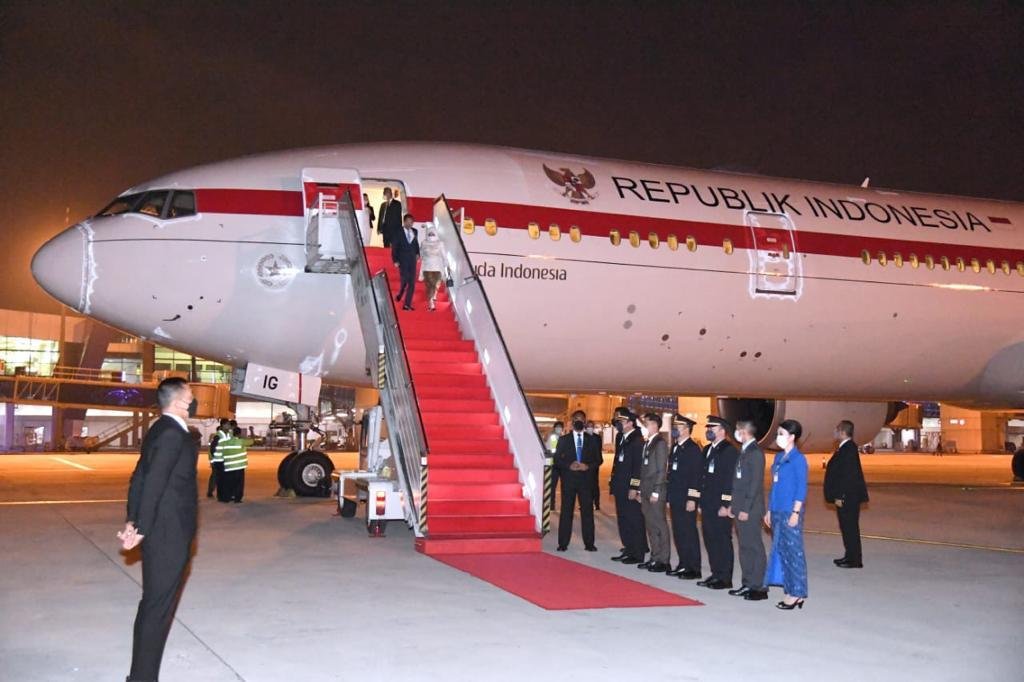Jakarta Globe are reporting on the success of President Jokowi’s recent trip Northwest Asia, which secured USD 11.9-billion of investment commitments for developing electric vehicles, basic materials, and other industries in Indonesia.
Ten Japanese companies pledged a total of USD 5.2-billion in investments to be realized over the next few years during a meeting between their top executives and Jokowi with his ministers at the Japan CEO Meeting 2022 in Tokyo on Wednesday.
In the meeting, Jokowi expressed his appreciation for the Japanese investments in Southeast Asia’s largest economy.
“However, I also hope that Japanese investors will consider its competitiveness. So that they can compete with other investors in Indonesia,” the president said.
“In short, good quality, competitive prices, that’s what we expect. I believe Indonesia is still one of the best places for investment.”
Minister of Investment/ Head of the Investment Coordinating Board (BKPM) Bahlil Lahadalia, who was also present at the meeting, expressed his gratitude for the investment commitment.
“Thank God, these companies have submitted their interests and plans to expand their investment, of about USD 5.2-billion or equivalent to IDR 75-trillion,” Bahlil wrote on his Instagram account.
“We offer a golden opportunity for Japanese investors to invest in Indonesia in order to improve supply chain resilience for the people of Indonesia and Japan in the future,” he said.
Among the Japanese investments was the USD 1.8-billion pledge from automotive giant Toyota Motor Corporation to build its electric vehicles industry in Indonesia over the next five years.
Rival Mitsubishi Motors Corporation also conveyed to the government its USD 666-million plan for electric vehicle manufacturing in the country.
Sojitz, a sogo sosha or Japanese vertically integrated trading company, would soon embark on cooperation with state-owned fertilizer company Pupuk Indonesia.
Sojitz Corporation President Director/CEO Masayoshi Fujimoto said the companies would produce methanol in West Papua, with a total investment of USD 1-billion.
“Currently, a feasibility study is being carried out, which is planned to be completed by the end of 2022,” Fujimoto said.
“We are grateful for the support from the Government of Indonesia so far, especially the Ministry of Investment, in chaperoning our investment in Indonesia.”
Mitsubishi Chemical Corp promised a USD 156-million capital injection in the polyester film industry in Indonesia, Bahlil said. Other investments included Denso Corp, which relocated its business from the United States in the four-wheel vehicle spare parts industry, Toyota Shusho in Patimban Port management, Sharp in air conditioning factories, Inpex in the oil and gas industry: and Kansai Electric Power in the power plants.
The president headed to Seoul on Thursday and met top executives from ten major South Korean companies in Seoul. These companies conveyed their commitments to invest in basic materials like steel and glass.
“Thank God these companies have plans to expand their investment in Indonesia and are in the stage of realizing an investment of USD 6.72-billion or equivalent to IDR-100.69 trillion,” Bahlil said.
On the side lines of the meeting, Silmy Karim, the president director of state-controlled steel maker Krakatau Steel and Kim Hag-Dong, the CEO of South Korean largest steel producer Posco, signed an agreement for an expansion in their cooperation.
In a deal worth USD 3.5-billion, the two companies would add capacity to their joint operation in Indonesia in anticipation of rising demand for steel for the electric vehicle industry and for Nusantara, the country’s new capital projects.
KC Glass & Materials invested USD 350-million in its local arm KC Glass Indonesia, aiming to make it the largest glass manufacturer in Southeast Asia. The company broke ground in Batang Integrated Industrial Complex in Batang, Central Java, on May 20, 2021, and seeks to employ 1,500 workers.
Japan and South Korea have been Indonesia’s significant sources of foreign direct investments in the past few years. The two countries consistently rank among the top ten largest investors every year.
In the first half of 2022, Japanese companies invested USD 1.75-billion in 2,821 projects across Indonesia. That was the fourth largest investment from a single country or special region after Singapore, China, and Hong Kong.
South Korea came seventh, with total investments of USD 896.7-million in 1,658 projects, the latest data from BKPM showed.
Source: Jakarta Globe

